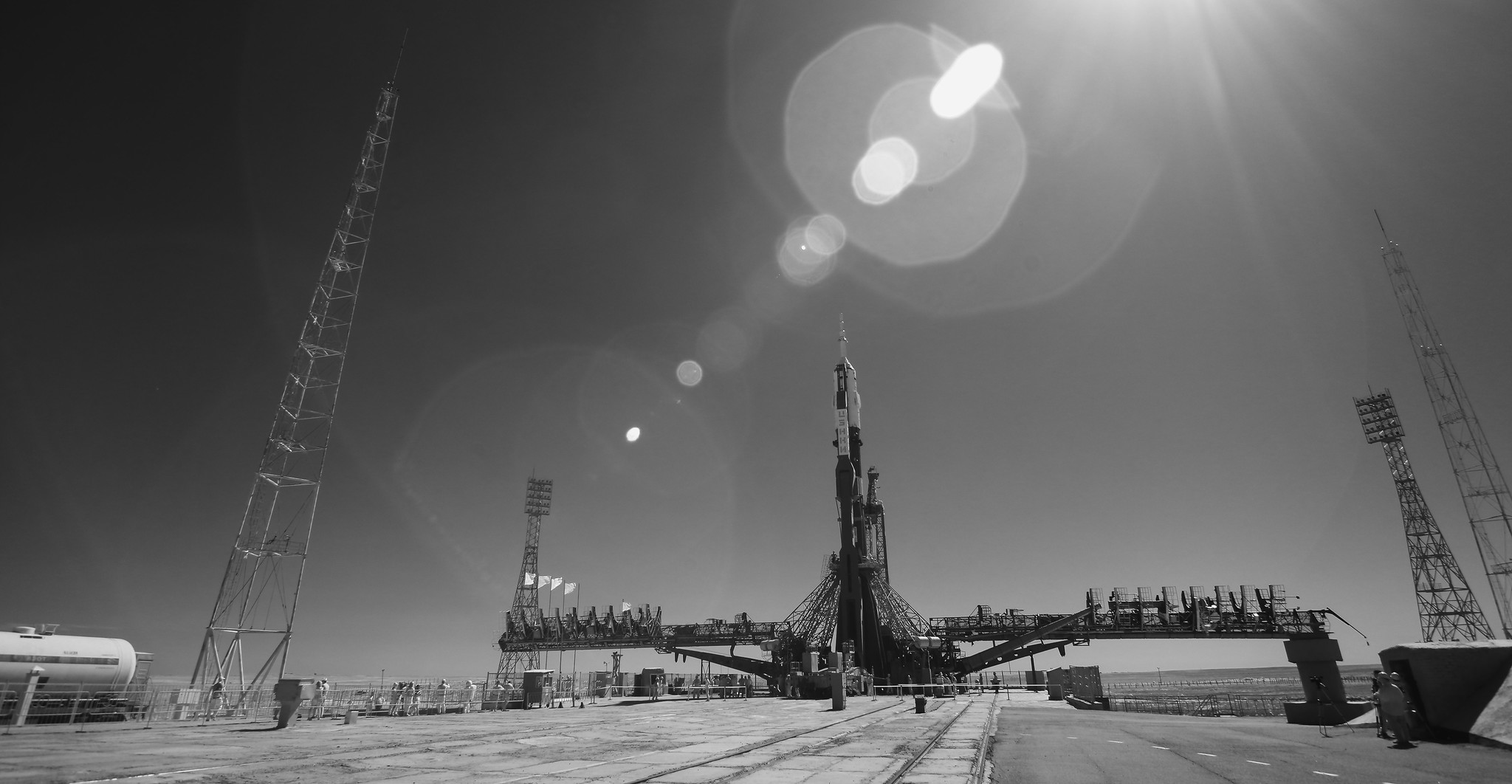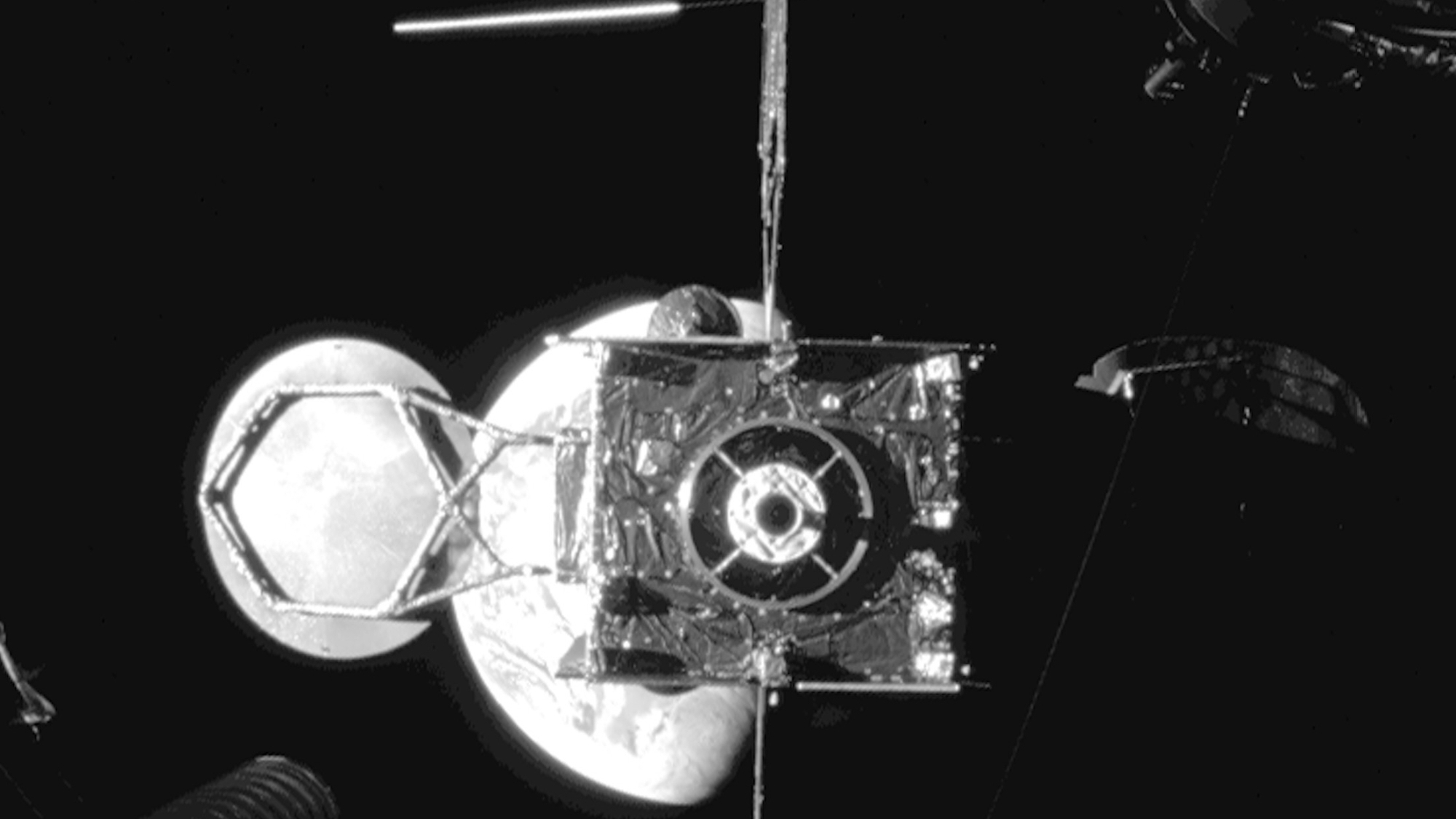Astronauts Will Launch to Space Station 50 Years After Apollo 11 Moon Landing: Watch Live!
Liftoff is at 12:28 p.m. EDT (1628 GMT).
Three new crewmembers will launch to the International Space Station today (July 20) on the 50th anniversary of the Apollo 11 moon landing, and you can watch the liftoff live online.
NASA astronaut Andrew Morgan, Italian astronaut Luca Parmitano of the European Space Agency and Russian cosmonaut Alexander Skvortsov will lift off on a Soyuz rocket from the Baikonur Cosmodrome in Kazakhstan at 12:28 p.m. EDT (9:28 p.m. local time, or 1628 GMT).
You can watch the launch live here on Space.com, courtesy of NASA TV, or directly via the agency's website at nasa.gov/live. NASA's broadcast will begin at 11:45 a.m. EDT (1545 GMT).
Related: Apollo 11 at 50: A Complete Guide to the Historic Moon Landing
- Relive the Apollo 11 Moon Landing Mission in Real Time
- Apollo 11 Moon Landing Giveaway with Simulation Curriculum & Celestron!
- Apollo 11 at 50: A Complete Guide to the Historic Moon Landing

The three crewmembers will arrive at the International Space Station in their Soyuz MS-13 spacecraft at 6:50 p.m. EDT (2250 GMT), when they will dock at the station’s Zvezda service module.
After they arrive, they will be greeted by the three Expedition 60 crewmembers currently on board the station: NASA astronauts Nick Hague and Christina Koch, and Russian cosmonaut Alexey Ovchinin, who launched in March. The crew will open the hatch to the Soyuz at 8:50 p.m. EDT (0050 GMT), and a formal welcoming ceremony will follow.
NASA TV will broadcast live coverage of the docking, hatch opening and welcome ceremonies as well as the liftoff. In between those broadcasts, you can enjoy some special Apollo 50th anniversary programming as well as some pre-recorded videos of the astronauts preparing for their mission. You can peruse the NASA TV schedule here.
Get the Space.com Newsletter
Breaking space news, the latest updates on rocket launches, skywatching events and more!
Morgan, Parmitano and Skvortsov will spend about six months at the orbiting laboratory, where they will participate in hundreds of science experiments in biological and physical sciences, NASA officials said in a statement.
Today's launch will be the first spaceflight for Morgan. It will be the second for Parmitano, who spent 166 days in space during Expeditions 36 and 37 in 2013. And it will be the third spaceflight for Skvortsov, the most experienced space traveler of the group, who has spent a total of 345 days in space over the course of three separate expeditions to the International Space Station.
- Apollo 11 Astronaut and Space Station Crew Reflect on Epic Moonshot
- Destination: Moon — What to Watch for the Apollo 11 50th Anniversary
- Expedition 59: The Space Station Mission in Photos
Email Hanneke Weitering at hweitering@space.com or follow her @hannekescience. Follow us on Twitter @Spacedotcom and on Facebook.
Join our Space Forums to keep talking space on the latest missions, night sky and more! And if you have a news tip, correction or comment, let us know at: community@space.com.

Hanneke Weitering is a multimedia journalist in the Pacific Northwest reporting on the future of aviation at FutureFlight.aero and Aviation International News and was previously the Editor for Spaceflight and Astronomy news here at Space.com. As an editor with over 10 years of experience in science journalism she has previously written for Scholastic Classroom Magazines, MedPage Today and The Joint Institute for Computational Sciences at Oak Ridge National Laboratory. After studying physics at the University of Tennessee in her hometown of Knoxville, she earned her graduate degree in Science, Health and Environmental Reporting (SHERP) from New York University. Hanneke joined the Space.com team in 2016 as a staff writer and producer, covering topics including spaceflight and astronomy. She currently lives in Seattle, home of the Space Needle, with her cat and two snakes. In her spare time, Hanneke enjoys exploring the Rocky Mountains, basking in nature and looking for dark skies to gaze at the cosmos.









